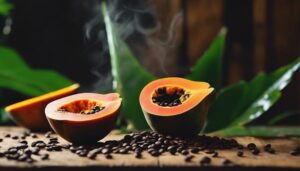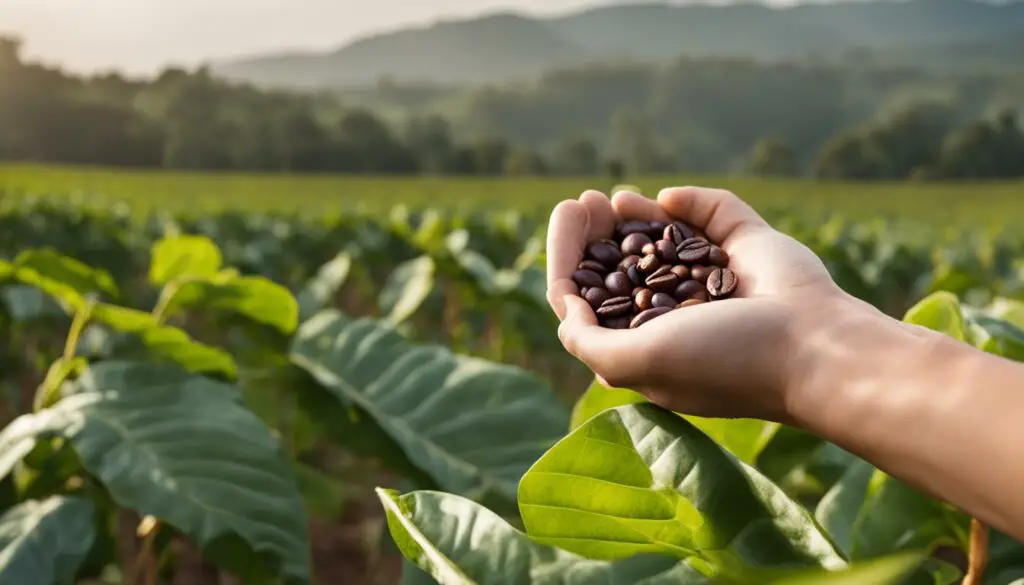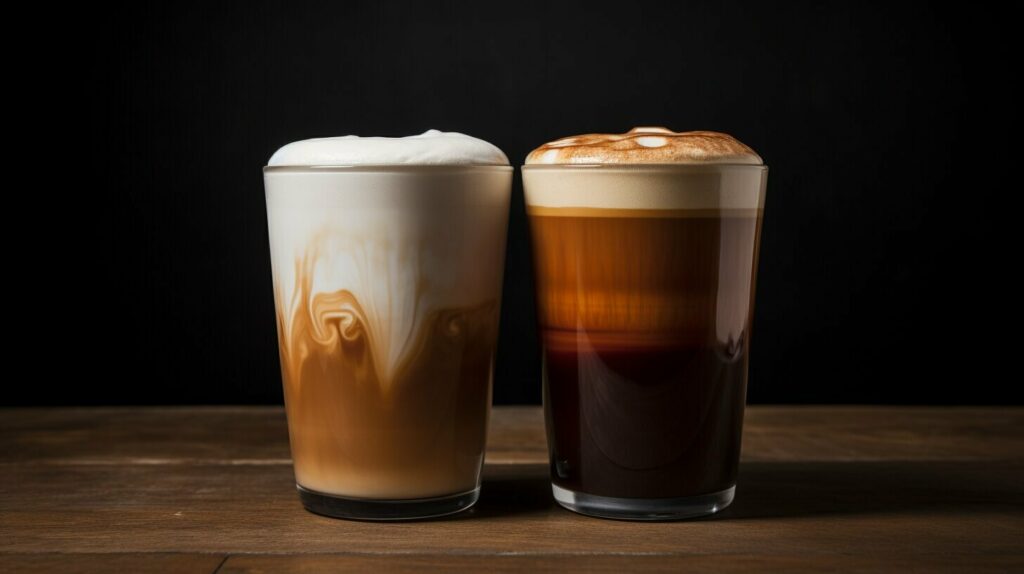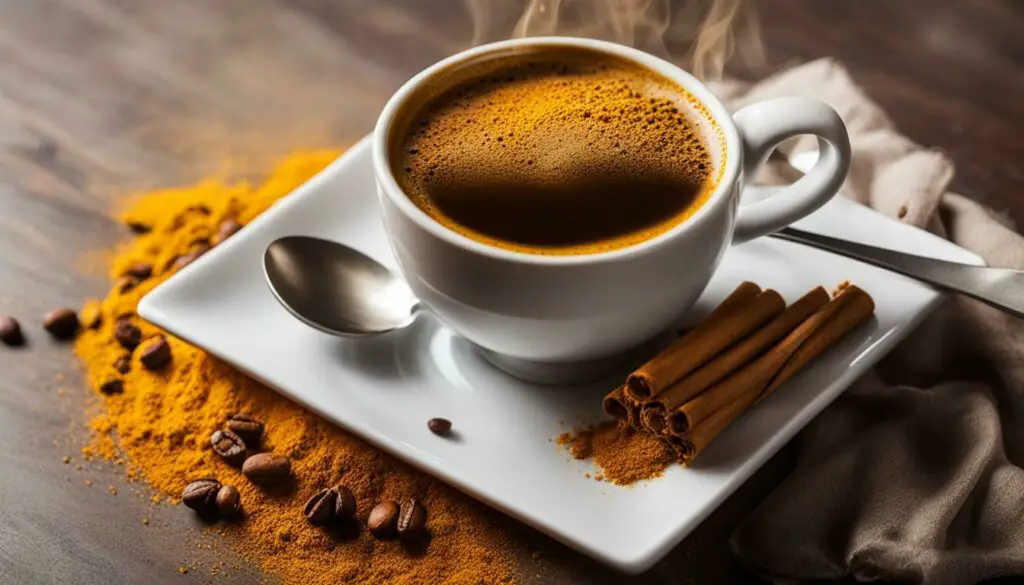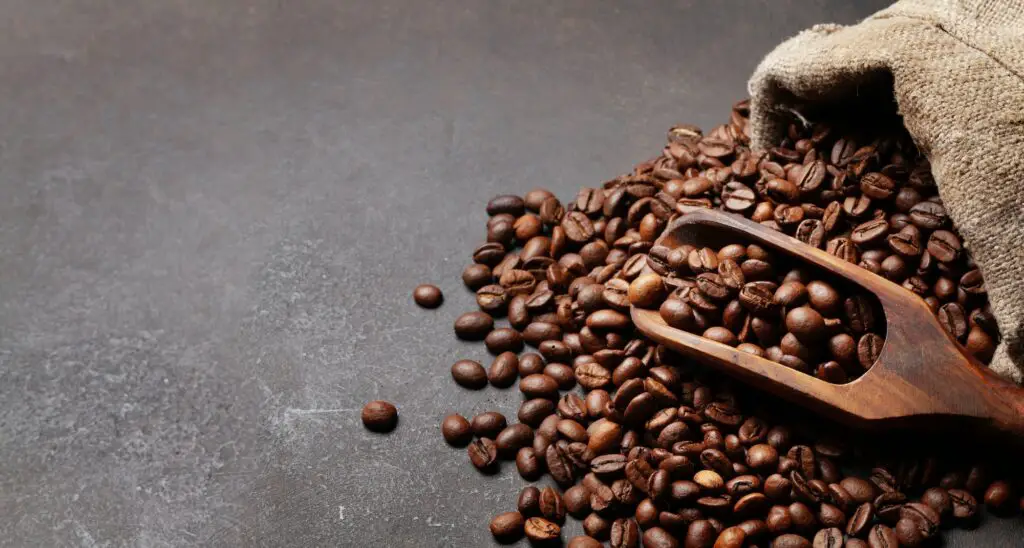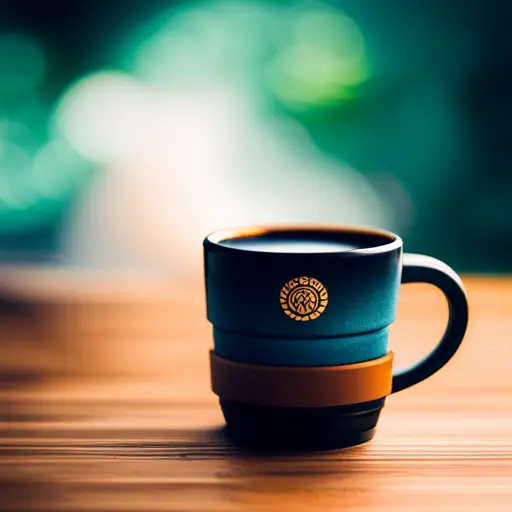Caffeine is a necessary component for many people’s daily routines – we certainly know that to be the case here at BushyBeard.
But, whether it’s for an early morning boost or an afternoon pick-me-up, caffeine has become a staple for millions of us worldwide.
But, whats the best drink to get your daily caffeine fix? Of course, we think its coffee but there have been a lot of murmerings about something called Matcha around BBHQ recently so I decided to dig a bit deeper into this strange drink.
What is Matcha?
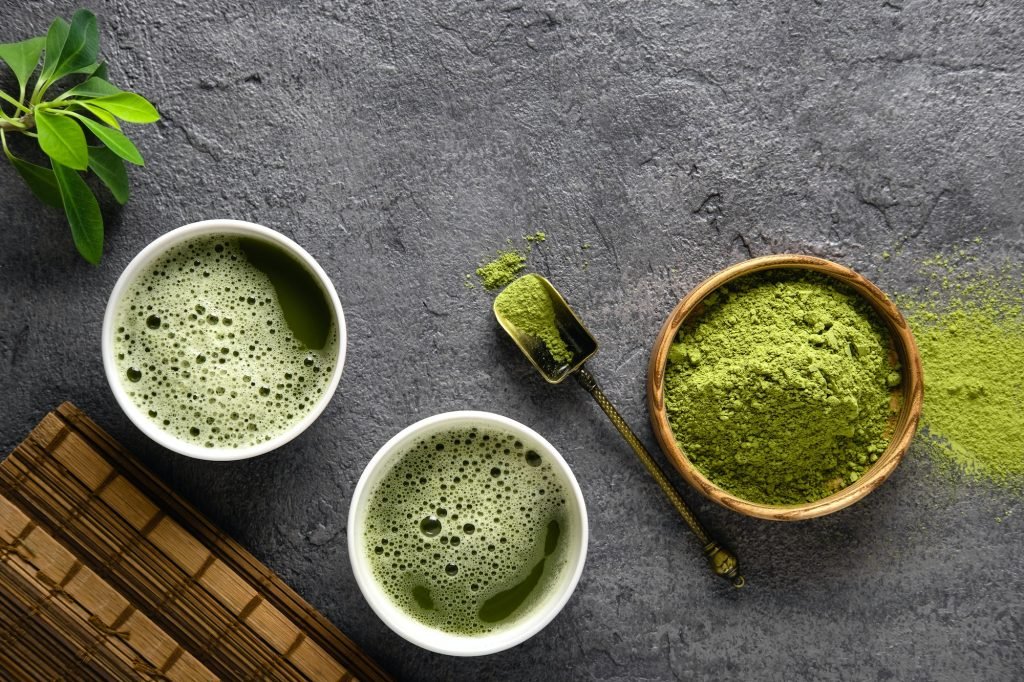
Matcha is a type of green tea that originated in Japan where it has been consumed for centuries.
It is made from the finely ground leaves of shade-grown tea plants, resulting in a bright green powder that is whisked with hot water.
On the other hand, Coffee (as we know) is a brewed beverage made from roasted coffee beans, typically served hot or iced.
But what are the differences between Matcha vs Coffee? Well, in this post I’m going to uncover them including their caffeine content, taste, preparation, and health benefits, and, of course, I will also address frequently asked questions and provide tips for choosing the best option for you.
Caffeine Content
One of the main reasons people turn to Matcha and Coffee is for their caffeine content.
Caffeine is a stimulant that helps boost energy levels, improve mental focus, and reduce fatigue. While both Matcha and Coffee contain caffeine, the amount can vary significantly.
The surprising thing is that Matcha contains approximately 35 mg of caffeine per half-teaspoon (1 gram) serving.
This is much lower than the caffeine content in a typical cup of coffee, which ranges from 95 to 200 mg per 8-ounce serving.
However, Matcha also contains L-theanine, an amino acid that promotes relaxation and reduces the jitters commonly associated with caffeine consumption. The combination of caffeine and L-theanine provides a more sustained energy boost and a calmer mental state.
Coffee, on the other hand, is known for its high caffeine content. The amount of caffeine in a cup of coffee can vary based on the roast, brewing method, and serving size. A typical 8-ounce cup of brewed coffee contains approximately 95 mg of caffeine, while an espresso shot can have up to 64 mg of caffeine. However, consuming too much caffeine can lead to side effects such as jitteriness, anxiety, and insomnia.
Taste and Preparation
Another key difference between Matcha vs Coffee is their taste and preparation. Matcha has a unique, earthy taste that is often described as grassy or vegetal. It also has a slightly sweet aftertaste that can be enhanced by adding sweeteners such as honey or sugar. To prepare Matcha, you need a bamboo whisk, a bowl, and hot water. The Matcha powder is sifted into the bowl, hot water is added, and the mixture is whisked until frothy.
Coffee, on the other hand, has a rich, complex flavor that can vary depending on the roast and brewing method. It can have notes of chocolate, caramel, fruit, or nuttiness. To prepare coffee, you need a coffee maker or French press, coffee beans, and hot water. The beans are ground and brewed with hot water to extract the flavor and caffeine.
Health Benefits
Matcha and Coffee both offer potential health benefits that make them popular among health-conscious consumers. Here are some of the health benefits of Matcha vs Coffee:
Matcha Health Benefits
- Rich in antioxidants: Matcha contains a high concentration of antioxidants called catechins, which help protect cells from damage caused by free radicals.
- Boosts metabolism: Matcha contains a compound called EGCG, which has been shown to increase metabolism and promote weight loss.
- Enhances brain function: The combination of caffeine and L-theanine in Matcha can improve mental clarity, focus, and cognitive performance.
- Improves heart health: Studies have found that Matcha can help lower blood pressure, reduce cholesterol levels, and improve overall heart health.
Coffee Health Benefits
- Boosts energy levels: Coffee is known for its ability to provide a quick energy boost, making it a popular choice for early morning wake-up calls.
- Improves physical performance: Caffeine in coffee can help improve athletic performance by increasing endurance and reducing perceived exertion.
- Reduces risk of chronic diseases: Studies have found that coffee consumption may lower the risk of type 2 diabetes, liver disease, and certain types of cancer.
- Enhances brain function: Caffeine in coffee can improve mental alertness, focus, and cognitive performance.
Matcha vs Coffee – Which is Better for You?
Deciding between Matcha vs Coffee ultimately comes down to personal preference and individual health needs. Here are some factors to consider when choosing between the two:
- Caffeine sensitivity: If you are sensitive to caffeine, Matcha may be a better option due to its lower caffeine content and the calming effects of L-theanine. However, if you need a stronger energy boost, coffee may be the way to go.
- Taste preference: If you enjoy the earthy, vegetal taste of Matcha, it may be a better option than coffee, which can be bitter or acidic. However, if you prefer a richer, more complex flavor profile, coffee may be the better choice.
- Health goals: If you are looking to improve heart health or boost metabolism, Matcha may be a better option due to its high antioxidant content and EGCG compound. However, if you are looking to improve physical performance or reduce the risk of chronic diseases, coffee may be the way to go.
FAQs
- Is Matcha or Coffee better for weight loss?
Both Matcha and Coffee have been shown to boost metabolism and promote weight loss, but Matcha may be more effective due to its high concentration of EGCG and antioxidants.
- Can Matcha replace coffee?
While Matcha can be a great alternative to coffee for those looking for a lower caffeine content and a calming effect, it may not provide the same level of energy boost as coffee.
- Is Matcha more expensive than coffee?
Matcha can be more expensive than coffee due to the labor-intensive production process and the high-quality, shade-grown tea leaves used.
Conclusion
In the Matcha vs Coffee debate, there is no clear winner. Both beverages offer unique flavors, potential health benefits, and varying levels of caffeine content. Ultimately, the choice between the two comes down to personal preference and individual health needs. Whether you prefer the earthy taste of Matcha or the rich flavor of coffee, both can be enjoyed as part of a healthy, balanced diet. So go ahead, indulge in your favorite beverage and savor every sip!


